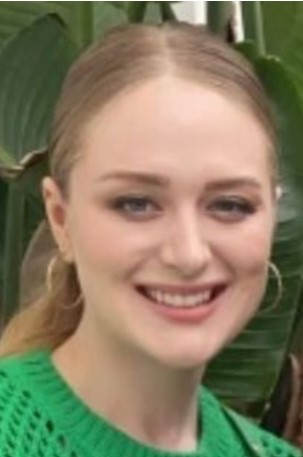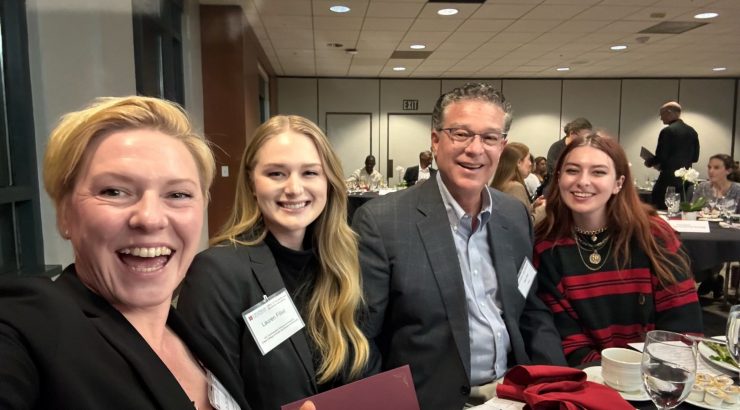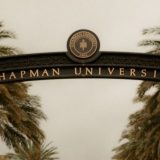CSD Student Lauren Fillet wins International Three Minute Thesis Competition Lauren is the first CSD graduate student to ever be selected as a finalist AND the first CSD student to ever win the 3MT competition at Chapman University!
May 28, 2024
 Can you tell me more about the award?
Can you tell me more about the award?
The Graduate Student Three Minute Thesis (3MT) Competition is an international competition in which universities all around the world have students condense their research projects into a 3 minute verbal presentation that is appropriate for a general audience. Selected finalists (this year at Chapman there were 7 finalists) present their 3 minute presentations from memory one after another live on stage. A panel of judges select first and second place winners based on a rubric of various criteria. The audience also votes on a third “People’s Choice” winner.
The contest required that I prepare a static visual on a powerpoint slide that reflects the content of my research. This was displayed for the audience while I verbally presented.
Each contestant’s presentation must have been longer than 2 mins 40 secs, but no longer than 3 mins in length. There was a large countdown timer visible from the stage to help us stay on track. If you went under or over this time limit, you were disqualified.
As first place winner, I received a certificate and a $1,000 cash prize! I’m also eligible to continue in this global competition by competing at the regional level, in which first place winners from various universities compete against one another.
Can you tell me a little bit more about your thesis?
My presentation for 3MT was titled “Spelling without Sound,” which focused on how spelling errors reveal that letters and words are represented differently in the minds of deaf people as a result of the influence of their knowledge of fingerspelling (a component of sign language). The implication of this research is that it suggests that the incorporation of fingerspelling into educational programs could improve the reading and writing skills of the deaf population. My presentation reflects the current project I have been working on with Dr. Sehyr (I’m Dr. Sehyr’s Graduate Research Assistant at the Cognition, Language, & Plasticity Lab). I am proud and grateful to be co-writing (with Dr. Sehyr) the manuscript for this research project, which is currently in preparation to be submitted for peer-reviewed publication.
For the study/experiment itself, hearing and deaf participants were asked to spell a variety of words. Their responses were recorded and Dr. Sehyr and I manually scored and coded all of the spelling errors by type (deletion of a letter, shifting of letters, etc). We cared about the types of errors because deaf and hearing people displayed different types of spelling errors, which suggests that deaf people have different mental representations of language compared to hearing people.
What it means to you to win this award?
I am so thrilled and honored to have won this award. As a young researcher, I’m so excited and grateful to have been included in such a huge event and to have been able to compete alongside such incredibly talented fellow students. Additionally, I’m proud of myself for facing the fears associated with public speaking by entering this contest and presenting live on stage. Public speaking is a skill I want to become very comfortable with, as I’d like to pursue a career in research and share my findings around the country and world. The skills I gained through this contest and the confidence this win has brought me is a large step towards becoming the leader I strive to be.
Did you have any support from a particular faculty member or fellow student?
(Dr. Zed Sehyr is not only one of my professors, but also my employer, as I work for her as a graduate research assistant in her Cognition, Language, & Plasticity Lab.)
Dr. Sehyr has supported me in this competition from day one when she sent me an email about this competition and suggested I enter. I had never heard of this competition before and felt nervous entering as a master’s student knowing that I would be competing against PhD candidates. Dr. Sehyr’s encouragement and faith in me gave me the confidence to give my all in this contest. All along the way she provided feedback on my presentation as I prepared. Even when she was traveling internationally in a drastically different time zone, she made the time to read over my work and provide feedback. When I emailed her to tell her that I had been selected as a finalist, she didn’t hesitate to tell me that she would absolutely be there in the audience to support me! I’m very grateful for her support and I feel incredibly fortunate to be able to work with her.
Any other details you would like me to share
I was so shocked and excited to be told by Dr. Janeen Hill, PhD (Dean of Crean College of Health and Behavioral Sciences) and Dr. Mary Kennedy, PhD (Chair of Communication Sciences and Disorders Department) that I am both the first communication sciences & disorders (CSD) graduate student to ever be selected as a finalist AND the first CSD student to ever win the 3MT competition at Chapman University!
I’m excited to share that I do plan to continue on to the next level of this competition, which is the Regionals Competition taking place next year, in which I will compete against other 1st place winners from various other universities.
On a funny note, I’d like to thank my dog, “Baby Clark” for being my captive audience as I rehearsed my presentation aloud over and over again every day until the competition. His sparkly little puppy eyes and innocent smile soothed my nerves as I fumbled over my words time and time again while rehearsing.


